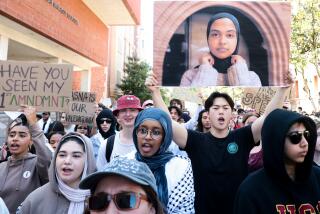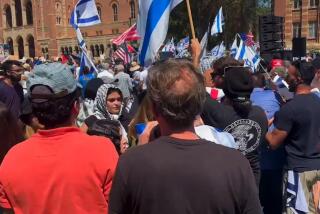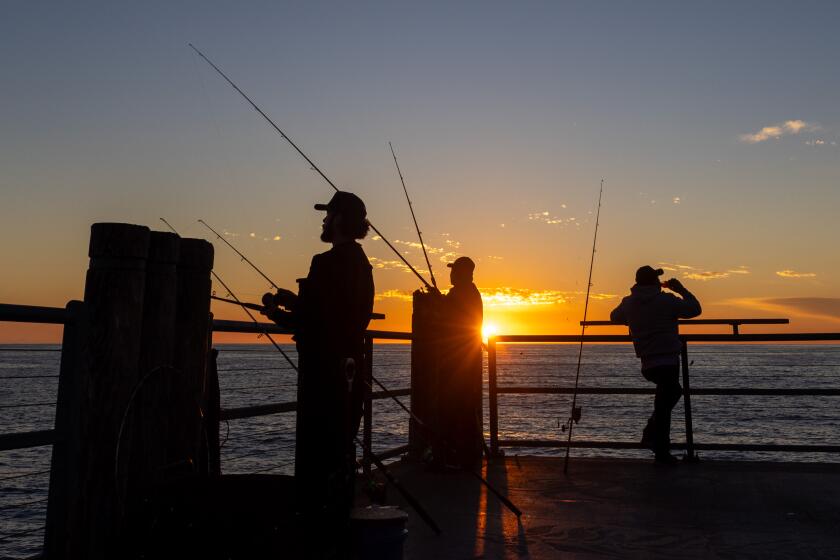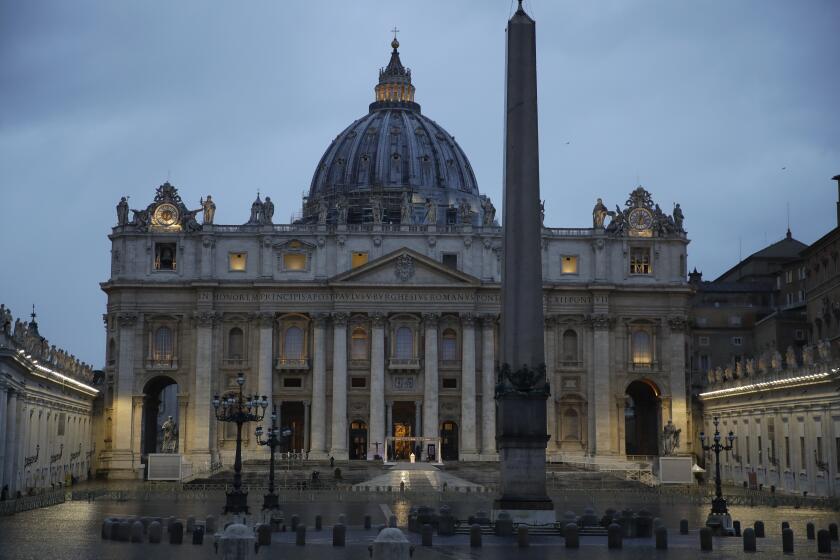Griffith’s land gift just keeps on giving
Col. Griffith Jenkins Griffith insisted he wasn’t trying to buy back the public’s favor when he offered to donate money for an observatory nearly two decades after he gave Los Angeles the land for the park in his name.
After all, by then Griffith had accumulated his fair share of critics. He was known to be pompous -- even said to have given himself the title of colonel after a brief stint in the California National Guard. While vacationing in Santa Monica in 1903, the well-known businessman, apparently in an alcoholic rage, shot his wife in the eye. He served two years in San Quentin for assault with a deadly weapon, and he never fully recovered his reputation.
“I don’t imagine he was really the wonderful guy you’d want to sit down and have a beer with,” said his great-grandson, Griffith Van Griffith. “I don’t think he was a great person.”
Yet, Griffith Van Griffith said, “he was a great person to give that property to the city.”
Griffith Van Griffith recently applied to the city’s Cultural Heritage Commission seeking historic-cultural monument status for the 4,200-acre park, to maintain it as a “safety valve” of recreation, relaxation and open space for the 10 million people who visit annually.
Although there are no plans to bring any new development or attractions to it, Griffith believes that such a designation would provide an added layer of protection for the park and honor the vision of his great-grandfather.
If the designation is approved, significant future changes on the hillside land would require approval from the commission. Some parts of the park -- including the Los Angeles Zoo and the Autry National Center -- would be excluded from the designation. The commission is scheduled to consider the issue Oct. 30.
In the early 1900s, many Angelenos were skeptical of the colonel’s motives when he donated the parkland as a “Christmas gift.” Some alleged that he ditched the property to avoid paying taxes. Others said he couldn’t make back his buck on the unsalable land.
In his defense, Col. Griffith told the city: “Ours is a rich city and a city of rich men, and I hold that it is the duty of every person of wealth to contribute liberally to the betterment of Los Angeles.”
Griffith, who made his fortune in the mining business, believed he alone should spend his wealth. “I have always believed that great wealth should be disposed of by him who earns it and during his own lifetime,” he wrote to the city. “I shall not, as others have done before me, will my money to be dissipated in amusement and profligacy, or as is too often the case, permit it to be wasted to the profit of judges and lawyers and selfish parasitical relatives.”
It may sound like tough love, but future generations of the Griffith family were well cared for.
The eldest of nine children, Griffith, upon his death in 1919, left his younger siblings about $10,000 each. To his only son, he left about $100,000, Griffith Van Griffith said.
When the Great Depression hit, the colonel’s son made a bold move: He invested the family fortune in the stock market, waited out the downturn until “the stock market went up and up and up, and they just left it there forever,” said Griffith Van Griffith, 55. But the only family money Griffith Van Griffith said he sees these days is in a trust, where his great-grandfather left the bulk of his earnings.
The colonel’s primary consideration was the park, Griffith Van Griffith said. He left $750,000 in a trust and instructed his heirs to spend it on the park.
Today the trust oversees about $2.5 million, Griffith Van Griffith said, and has contributed to the Greek Theatre, the Observatory, a statue of his great-grandfather in the park, the Visitor Center, computers for the golf courses and fences along horse trails.
Thirty years after the city inherited the park’s deeds, real estate experts valued Griffith’s land at about $50 an acre -- more than a hundred times its value when the family owned it.
Such open space today in Southern California could fetch as much as $50,000 to $100,000 an acre, said Jim Stein, president of Stein Valuation Inc., a Sherman Oaks-based commercial real estate appraiser.
Multiply that by the 3,015 acres Col. Griffith gave away more than 100 years ago, and the plot is worth as much as $150 million to $300 million. If the land included entitlements that permitted development, that could have jumped to $3 million to $6 million an acre during the market peak in 2006, Stein said.
The younger Griffith, a retired buyer for an office supply company who now lives in Morro Bay, said he has no regrets about his great-grandfather’s decision to give the land to Los Angeles. Better the park just stay as it is, he says. “I wouldn’t change a thing about it. . . . I would always want it to be a park for the people.”
Without Griffith Park, he asks, what would the city have?
“If it wasn’t there, there would be 4,000 acres of more homes. . . . It’d look like the Hollywood Hills, and it’d just be ugly,” he said.
“I thank God it’s there. It’s the heart of the city, and it’s the lungs of the city.”--
More to Read
Start your day right
Sign up for Essential California for news, features and recommendations from the L.A. Times and beyond in your inbox six days a week.
You may occasionally receive promotional content from the Los Angeles Times.






